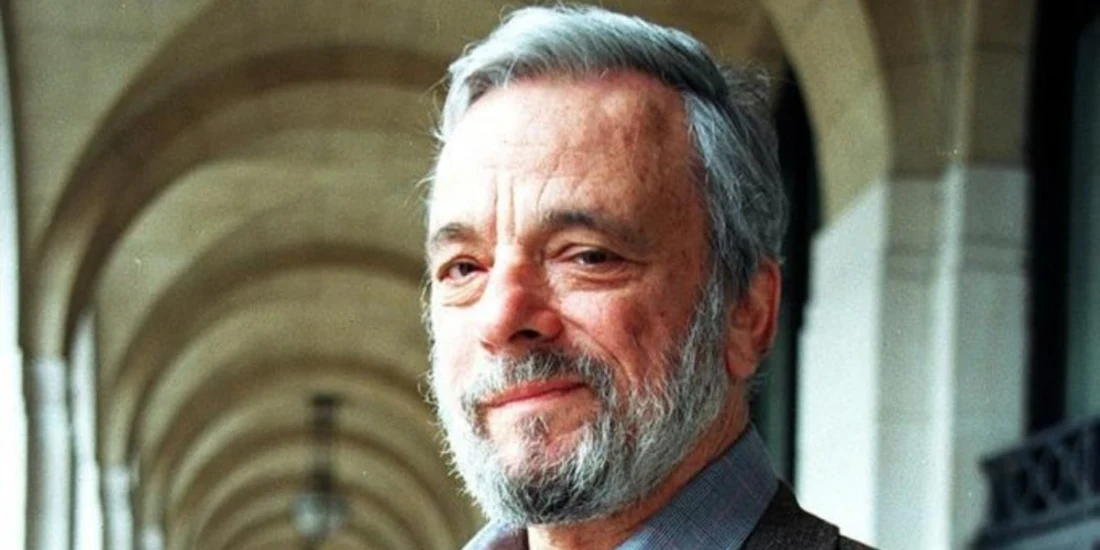Discovering and rediscovering Sondheim: The lasting legacy of the Bard of musical theatre
Sondheim's death comes at a time when his work is being reimagined on stage and screen, serving as a reminder that his work remains alive and fresh with new insights to discover.
In the wake of Stephen Sondheim's death at age 91 on November 26, choruses of "Sunday," the glorious first act finale of his art-themed Sunday in the Park with George, rose up in Times Square and Central Park and beyond in New York. Personal recollections about the legendary Broadway composer and lyricist by friends, colleagues, and critics likewise have been shared.
My own such story is but a fragment, a single fleck of color, perhaps, in a sea of blue, purple, yellow, red. I once had an amiable across-the-aisle exchange with Sondheim in 2004 at a rehearsal for a 10th anniversary concert staging of Passion. Being perched directly across from him made my vantage point the best seat in the house.
And, yes, of course, I found myself watching him as much as I was taking in what was happening on the stage. I was struck by his delight at watching Donna Murphy and Michael Cerveris breathe life — again — into Fosca and Giorgio and the words and music of the fevered, obsessive love story. It was as though Sondheim was experiencing the work for the first time.
My oh-so-brief encounter followed decades of appreciation for his work — his brain-teasing, tongue-twisting lyrics and ear-caressing music to his peerless did-he-rhyme-that-with-that gifts. There was admiration for his varied, often audacious themes: Former showgirls? Check. Follies. Vengeance with a side of cannibalism? Check. Sweeney Todd. Killers and wannabe slayers of U.S. presidents? Check. Assassins. Westernization of Japan? Check. Pacific Overtures.
And, in the end, one also had to marvel at his impeccable timing. Desiree Armfeldt may have lacked that in the lush and lusty A Little Night Music, but the creative musical force behind her character certainly didn't.
Sondheim's death, a day after Thanksgiving, came as his presence in New York looms extra-large — and not just on the marquee of the W. 43rd Street theatre that bears his name. Look for him and, like a slightly tweaked song lyric from Sunday in the Park, "There he is, there he is, there he is, there he is..."
That includes a very fine, sold-out revival of Assassins at Classic Stage Company, and a gender-bending Broadway staging of Company, opening December 9. On film, there's Steven Spielberg's soon-to-premiere version of West Side Story, the 1957 musical for which Sondheim wrote the lyrics. And in tick, tick...BOOM!, Sondheim, played by Bradley Whitford, is a muse to Rent creator Jonathan Larson, played by Andrew Garfield.
Gone? Yes. And no. Sondheim's legacy lives on. In that sense, his passing has life's duality that he captured so eloquently in "Sorry-Grateful." That song is from Company, his break-the-mold 1970 musical about Manhattan marriages as filtered through the eyes of a single friend.
The eagerly anticipated new production of the show will be the third one for me on Broadway. It's a neon-bright reminder of the fact that Sondheim is always being reinterpreted and reinvented. How will the new production and cast compare to the past ones? What fresh insights will bubble up? How will that particular line/song/character land this time?
The same questions arise at every Sondheim show, including three personal favorites I've been lucky enough to see in multiple productions over the years. The leap of time and connecting of dramatic dots make Sunday in the Park constantly thrilling. As a wake-up call about the perils of buying into a happily ever after, Into the Woods casts a persuasive spell. And with songs like "Not a Day Goes By" and "Like It Was," along with its cautionary message that's told in reverse about the value and vulnerabilities of friends, Merrily We Roll Along delivers direct hits to the head and the heart.
Just like the loss of Stephen Sondheim.
Originally published on
